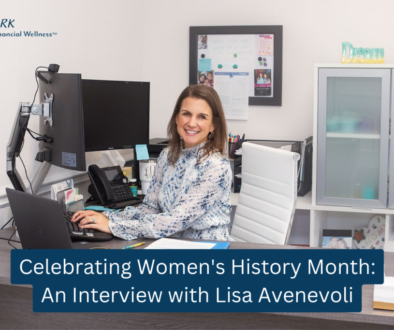Medical Bills
Paying for Medical Bills
Many of our clients are surprised to learn that when they come into a large medical bill, they do not have to pay it all at once. Often times, there are different options to bring down the price and avoid high interest rates.
Use these tips for lowering your medical bill payments, instead of using a credit card and racking up high interest rates – and unnecessary stress.
Step 1: Review your bill
When you receive a large medical bill, always review it closely for any errors. Compare the bill with your health insurance’s explanation of benefits. If you have any questions, it’s best to call your insurance to settle any uncertainties. Unfortunately, we’ve seen many bills that have been coded incorrectly. In one case, our client was charged three times what they should have been charged for a certain procedure.
Step 2: Negotiate your bill
Everything in life is negotiable, including medical bills. Depending on the type of charge, you may be able to negotiate a lower price and meet your medical provider somewhere in the middle of what you were charged and what you can pay.
Step 3: Set up a payment plan
Once you have determined that your medical bill is accurate and as low as possible, if unable to pay it off in full, consider setting up a payment plan with your medical provider. Many providers offer monthly payment plans at a 0% interest rate. We recommend this route as opposed to putting the bill on a credit card with a much higher interest rate.
Step 4: Consider a medical credit card
If your provider doesn’t offer a payment plan, they might accept a medical credit card. Many of these cards have a 6 to 12-month interest-free plan, so this is a great option if you know you can pay it off while you are still not collecting interest. If not, you can be penalized with a deferred interest rate that can significantly increase your debt and lower your credit score.
Step 5: Hire a professional
Sometimes you just need to outsource. Even if hiring a financial planner or medical bill advocate seems expensive, they can actually help you save money in the long run. They can help you consider even more options like taking out a personal loan, opening an interest-free credit card, or applying for Medicaid and income-driven hardship plans.
Avoiding medical debt only works for so long. After a while, it can catch up to you, harm your credit score, and put delinquent medical debt on your credit record.
Read more about your options for paying off medical debt here: https://www.nerdwallet.com/article/finance/pay-medical-debt
If you have any questions about paying off debt, savings for medical expenses, or just have interest in improving your overall financial health and wellbeing, contact us today at Lisa@ARKFinancialWellness.com.
Disclaimer:
This work is powered by Advisor I/O under the Terms of Service and may be a derivative of the original.
The information contained herein is intended to be used for educational purposes only and is not exhaustive. Diversification and/or any strategy that may be discussed does not guarantee against investment losses but are intended to help manage risk and return. If applicable, historical discussions and/or opinions are not predictive of future events. The content is presented in good faith and has been drawn from sources believed to be reliable. The content is not intended to be legal, tax or financial advice. Please consult a legal, tax or financial professional for information specific to your individual situation.

This content not reviewed by FINRA
ARK Financial Wellness, LLC is an independent firm with advisory services offered through Blackridge Asset Management, LLC, a Registered Investment Adviser. Blackridge Asset Management is an SEC Registered Investment Advisory Firm.
ARK’s YouTube Videos
SECURE Act 2.0 Highlights
What is the SECURE Act? Lisa shares a brief summary of what it is, what the original bill included and how the changes in the SECURE Act 2.0 can help you save for a more successful retirement.
Click here to check out our blog post on this topic.
How to Start Out on the Right Foot in 2023
Lisa shares some questions to ask yourself and your loved ones which will help you to grow financially and personally in the new year.
What is a Fiduciary?
Lisa talks about what a fiduciary is and why its so important to work with someone who is held to a fiduciary standard when it comes to managing your money.
Read more about our Fiduciary Commitment here.
The Financial Future is Female
Traditionally, men have handled the finances. But at ARK, we are finding that more and more women, regardless of their relationship status- Single, married, divorced, widowed – are making the big financial decisions and are managing the day-to-day finances. Watch this video to learn more about the unique challenges and the many opportunities that women have when it comes to our finances. Check out the blog post on this topic also.
Planning for Your Future…and for Your Today
We find that clients sometimes struggle with doing what is needed to save for their future needs and goals, but also having enough leftover to live for today. Watch this video to find out what it means to live for today.
How Much Should I be Saving and Spending at Age 40?
“Where should I be – financially – at age 40?” Or any age for that matter? We get this question a lot at client meetings. While Google and benchmarks can help you get started, they can’t give you the answers you need for your particular situation, lifestyle and goals. Watch more to get tips on how to save and spend your money wisely at any age!
Real vs Fake Financial Advisors
Set the bar high, and do your homework in seeking a Financial Advisor to aid in making crucial financial decisions for you and your family. Get a good understanding of their background, education, experience and services by using free online tools to help you differentiate real from fake Financial Planners/Advisors!
If you have more questions about this, visit our FAQs page.



